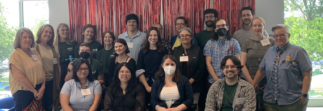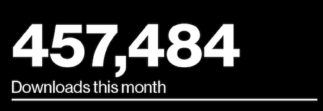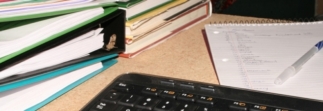In its preliminary report, the Future of Libraries Task Force envisioned an open library platform, one that it hopes will inspire “clever, creative, and productive ‘hacks,’ in the form of innovative uses, tools, and programs that extend and amplify our work.” Here’s a look at some of the Libraries’ recent projects and experiments that reflect this ethos—creative and collaborative solutions that reflect MIT’s pioneering spirit:
The Future of Producing/Sharing/Consuming Content
- The CODEX Hackathon, co-sponsored by the Libraries, gathered programmers, designers, writers, librarians, publishers, readers, and others to imagine the future of books and reading. Groups developed such innovations as LitBit, an app designed to track and encourage long-form reading like a fitness tracker, and a data reporting dashboard for public libraries. Libraries Web Developer Matt Bernhardt said of working on the latter: “It gave me an opportunity to work with technologies I don’t use regularly—that sort of broadening horizons is energizing and can be helpful down the road when taking on new projects.”
- The Aga Khan Documentation Center released a prototype of Layer Cake, a 3-axes mapping tool that enables users to build maps layering narrative, time, and space. AKDC Program Head Sharon C. Smith, Ph.D., collaborated with Harvard Ph.D. candidate Ali Asgar Alibhai and GSD graduate James Yamada on the pilot project documenting author Ibn Jubayr’s 12th-century pilgrimage from Spain to Mecca. The resulting map shows his travels temporally, geographically, and with descriptions of the sites he visited.
- The Lewis Music Library hosted the Karajan/MIT Classical Music Hackathon, inviting participants to build tools that allow innovative, digital experiences of classical repertoire. One was an app for playing music on a smartphone that matches the music to the user’s pace of walking, running, or even dancing. Another team built a virtual reality experience around the music of a classically trained viola player.
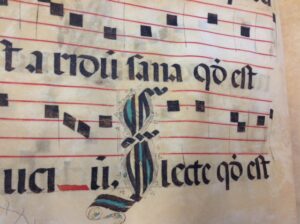
Class of 1982 Sequentiary
Transforming Teaching and Learning
- Staff from across the Libraries came together to help Professor Michael Cuthbert use the Class of 1982 Sequentiary, a rare and delicate 15th- or early 16th-century manuscript, in his spring 2017 Medieval and Renaissance Music class. The team collaborated to bring this rare archival object into the digital realm, using the International Image Interoperability Framework (IIIF), a standardized method of delivering images online, and a viewer which allows users to zoom, pan, and study 304 pages of music in extraordinary detail.
- With support from the Experimental Collections Fund, Libraries Senior GIS Specialist Daniel Sheehan was trained and certified to safely fly small unmanned aerial vehicles, often called drones, to collect data and create detailed models and maps. Sheehan is now bringing these skills to IAP sessions, working with classes such as Professor Kristin Bergmann’s Sedimentary Environments, and training others to fly safely and legally.
- Over the 2017 IAP, collections in Hayden Library were reorganized, freeing up areas the Libraries will use for study space experiments. Over the spring term and into the summer, the community will be invited to try different space and furniture configurations.
- The Libraries partnered with MakerWorkshop, an MIT student-run makerspace, to make a number of equipment kits available to check out from Rotch Library. With resources like hand tools, cameras, electronics, and sensors, the kits enable students to bring the tools to the project rather than bringing their project to the tools.
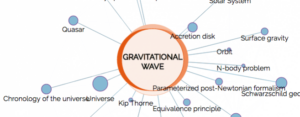
Yewno
Developing New Tools for Discovery
- The Libraries ran a beta trial for Yewno, a search tool designed to foster serendipitous discovery; it uses full text analysis and machine learning to create a visual, interactive map of connected concepts.
- Users are testing a “bento box” search interface on the Libraries website. Based on the concept of a Japanese lunch box with different compartments, it serves up brief search results from a variety of sources, organized by format/type, to help users make better choices.
- Libraries staff are currently developing a prototype for a text-mining service for the MIT thesis collection. Using a simple interface or building their own tool using an API, researchers would be able to search across the set of theses and dissertations digitized by the Libraries, querying the full text for further research and analysis.
